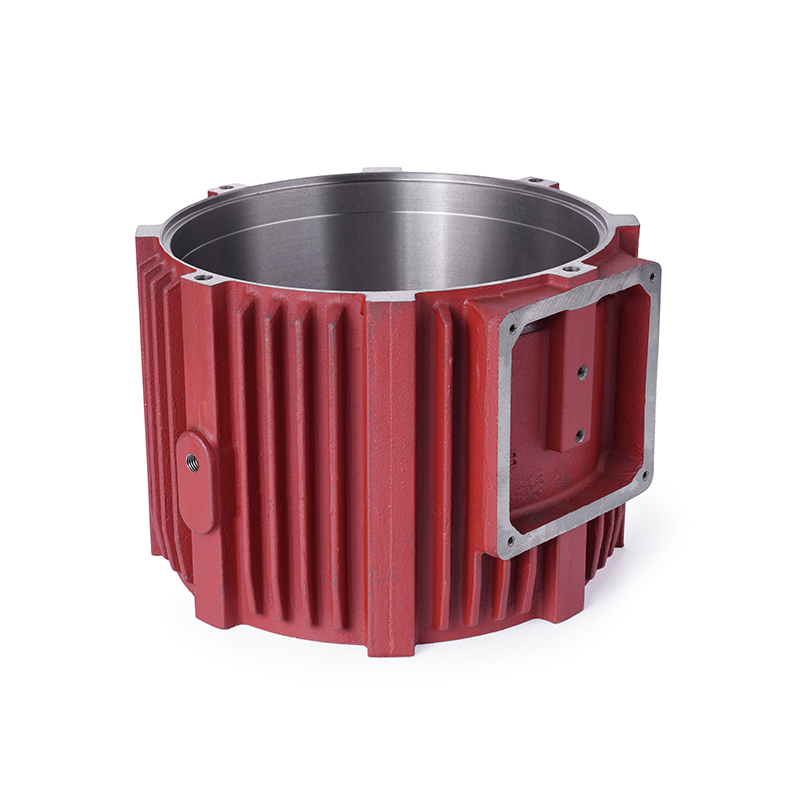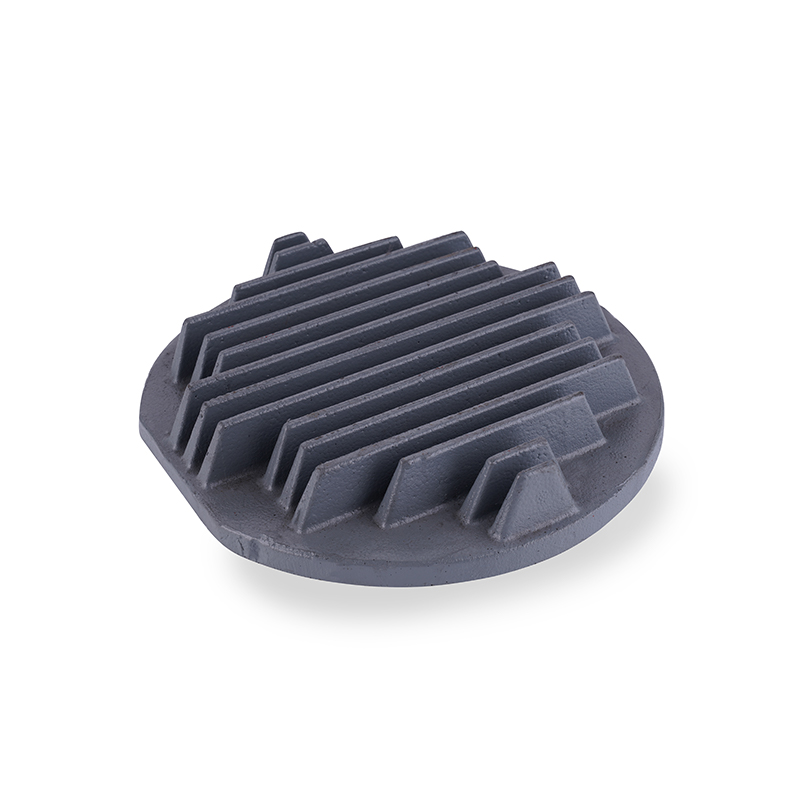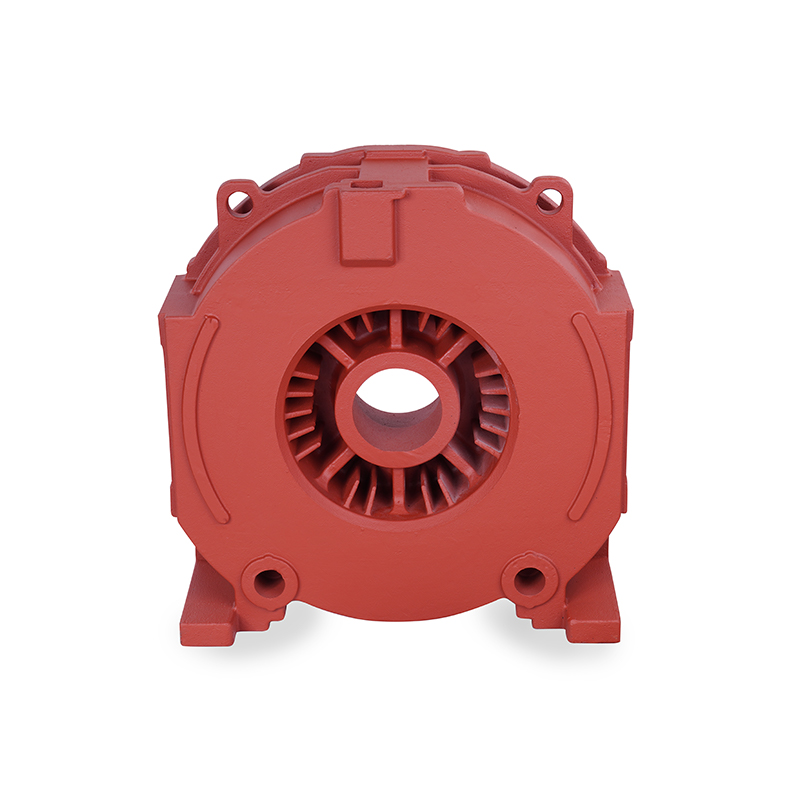Elevator systems have become a staple in modern architecture, providing efficient vertical transportation in both residential and commercial buildings. From the elevator car itself to the supporting mechanisms, every component must be manufactured with utmost precision and durability to ensure smooth and safe operation. At Ningbo Jiubao Transmission Machinery Co., Ltd., we specialize in providing high-quality elevator casting parts and elevator equipment cast iron casting to meet the rigorous demands of this critical industry.
As a direct manufacturer with our own foundry and processing plant, Ningbo Jiubao is well-positioned to produce durable and reliable cast iron parts for a variety of elevator systems. Cast iron is an ideal material for elevator components due to its combination of strength, durability, and ability to resist wear over time. These parts must withstand significant mechanical stresses and environmental factors such as vibration, moisture, and temperature changes, all while ensuring the safety of elevator passengers and goods.
1. The Importance of Cast Iron in Elevator Equipment
Elevator equipment is designed to function under significant mechanical stress and with constant use, making the material used in its construction a critical factor in its performance and longevity. Cast iron, specifically elevator equipment cast iron casting, is known for its ability to absorb vibrations, withstand heavy loads, and resist corrosion, making it an excellent choice for the demanding environment of elevator systems.
Cast iron is particularly well-suited for parts like frames, counterweights, and guide rails that must maintain structural integrity under pressure. It also offers a high level of safety for passengers, as the material helps ensure smooth and steady operation. The vibration-dampening properties of cast iron contribute to a quieter, more stable ride, which is especially important in high-rise buildings where elevator movements can be felt more acutely.
In addition to its physical properties, cast iron has excellent castability. This means it can be molded into complex shapes with precision, allowing for the creation of intricate elevator components. Ningbo Jiubao Transmission Machinery Co., Ltd. uses advanced foundry techniques to produce high-quality cast iron parts, ensuring that they meet the specific requirements of each elevator project. Whether the part is a counterweight or a part of the door frame, the quality and strength of our cast iron components are crucial for ensuring safe, reliable, and efficient elevator systems.
At Ningbo Jiubao, we understand the importance of durability and reliability in elevator systems. Our custom solutions cater to a range of elevator applications, offering cast iron components that can withstand the test of time while ensuring safety for building occupants. With our expertise in elevator casting parts and elevator equipment cast iron casting, we provide products that meet and exceed industry standards for quality and performance.
2. Common Applications of Cast Iron in Elevator Systems
Elevator systems consist of many components, and cast iron plays a vital role in several critical areas. The following are some of the most common applications of cast iron in elevator equipment:
Counterweights
In elevator systems, counterweights are essential for balancing the elevator car’s weight, helping to offset the weight of the car and its load. This balance reduces the amount of energy required to lift the elevator and minimizes wear on the motor. Cast iron is used extensively for elevator counterweights due to its high density, durability, and resistance to wear. Ningbo Jiubao Transmission Machinery Co., Ltd. manufactures custom counterweights using high-quality cast iron, ensuring that each weight is designed to handle the mechanical load and support the overall efficiency of the elevator system.
Elevator Frames
The elevator frame serves as the foundation of the elevator system, supporting the elevator car, counterweights, and drive system. Made from robust materials, the frame needs to withstand the heavy loads from the moving components while also maintaining alignment. Cast iron’s high tensile strength and durability make it the ideal material for elevator frames, as it can absorb heavy forces without compromising its integrity. At Ningbo Jiubao, we produce custom elevator equipment cast iron casting parts that ensure the elevator frame remains structurally sound throughout its lifetime.
Guide Rails
Guide rails are another critical component in elevator systems, ensuring the car moves smoothly within the shaft. Cast iron is commonly used for elevator guide rails because it is both strong and resilient, providing the necessary stability and support as the car travels up and down. Cast iron’s ability to resist wear ensures the guide rails remain effective for years, even with heavy and frequent use. Ningbo Jiubao’s expertise in elevator casting parts guarantees that each guide rail meets the specific requirements for both safety and performance.
Elevator Doors and Door Frames
Elevator doors and their frames are subject to constant opening and closing, leading to wear and tear over time. To ensure the doors operate smoothly and remain durable, cast iron is an ideal choice. It is particularly effective at resisting the forces generated during door movement and providing strength to the structure. Ningbo Jiubao specializes in custom cast iron elevator equipment cast iron casting for elevator doors and frames, ensuring they are both functional and long-lasting.
3. The Cast Iron Casting Process for Elevator Equipment
The manufacturing of elevator components from cast iron involves a detailed and meticulous casting process. At Ningbo Jiubao Transmission Machinery Co., Ltd., we employ advanced foundry techniques to create high-quality elevator equipment cast iron casting parts. Here’s a breakdown of the process:
Pattern Making
The process begins with the creation of a pattern, which is a replica of the final part. This pattern can be made from various materials such as wax, metal, or sand. For elevator casting parts, the pattern is typically designed to reflect the specific dimensions and features required for the part. The pattern must be highly accurate to ensure that the final cast piece fits perfectly within the elevator system.
Mold Creation
Once the pattern is made, it is used to create a mold. The mold is typically made from sand, which is packed around the pattern to form a cavity that matches the shape of the final part. The mold must be sturdy and able to withstand the high temperatures involved in the casting process. Ningbo Jiubao ensures that our molds are precision-engineered to meet the exact specifications of each elevator equipment cast iron casting part.
Melting and Pouring
Next, the cast iron is melted in a furnace, usually at temperatures ranging between 1200°C and 1400°C. Once the iron reaches a molten state, it is carefully poured into the mold, where it takes the shape of the pattern. The pouring process must be done with precision to avoid defects and ensure the integrity of the final product. At Ningbo Jiubao, we maintain strict quality control throughout this stage to ensure that the cast iron meets the required specifications.
Cooling and Removal
After the cast iron is poured into the mold, it is allowed to cool and solidify. This process can take several hours, depending on the size and complexity of the part. Once cooled, the mold is broken away to reveal the solidified cast iron component. This is where the elevator part takes its final form, whether it’s a frame, counterweight, or guide rail.
Finishing and Inspection
Once the part has been removed from the mold, it is cleaned to remove any excess material, such as sand or slag. After cleaning, the part undergoes finishing processes such as machining, grinding, or polishing to ensure it meets the exact tolerances required. Ningbo Jiubao’s elevator casting parts are subject to rigorous inspections to check for defects, dimensional accuracy, and material integrity. Each part undergoes detailed testing to ensure it is fit for use in demanding elevator systems.



 русский
русский 日本語
日本語






